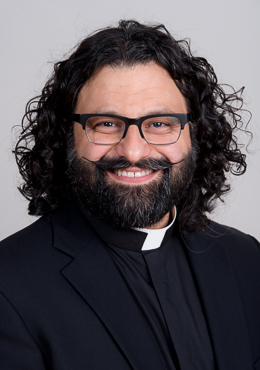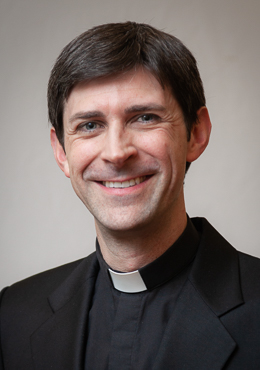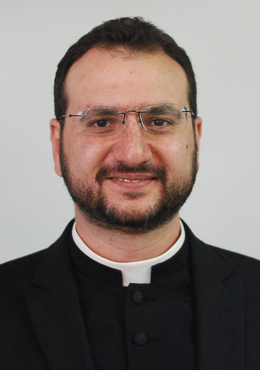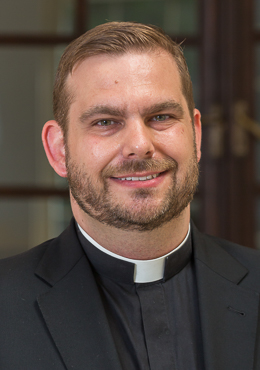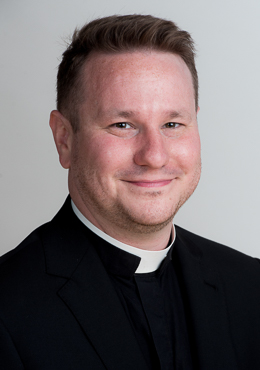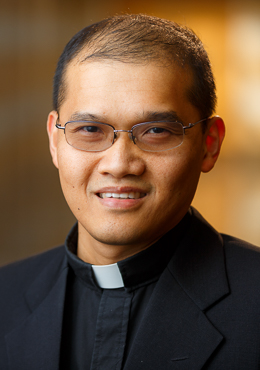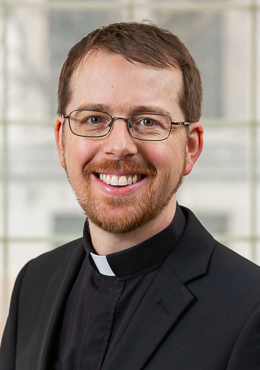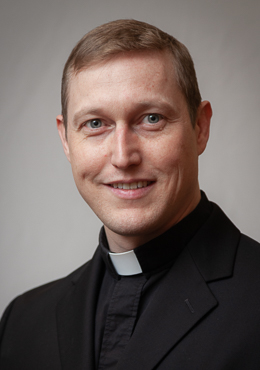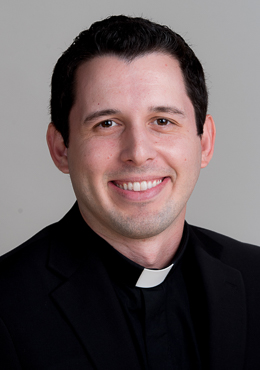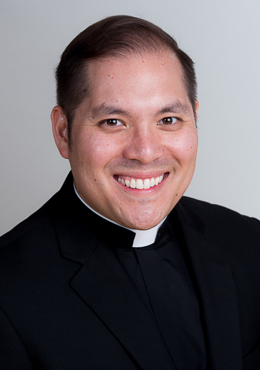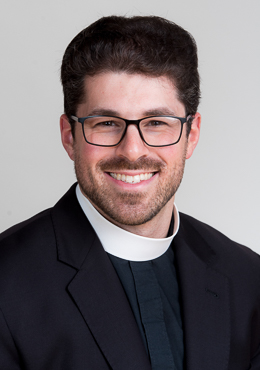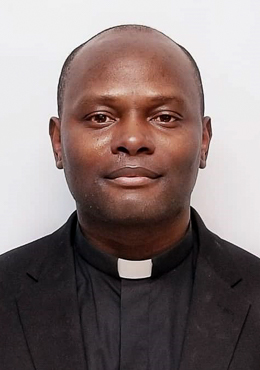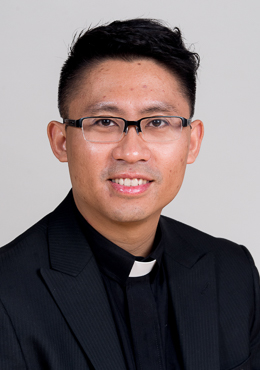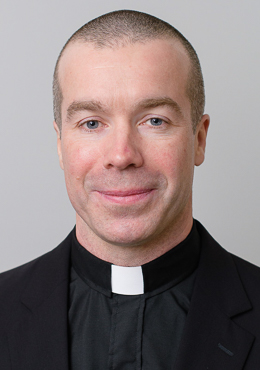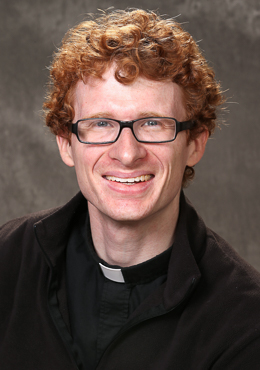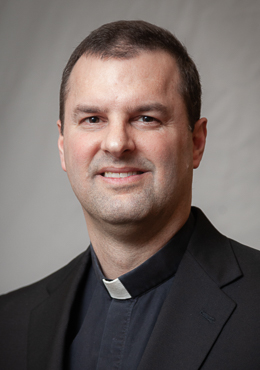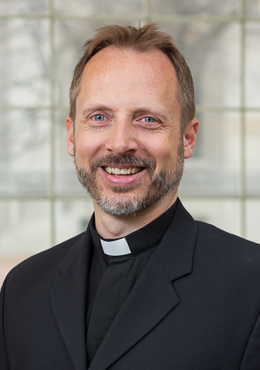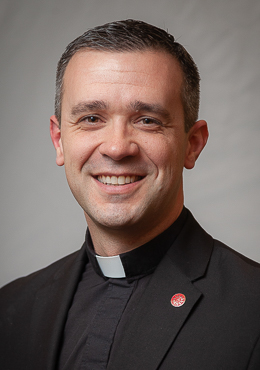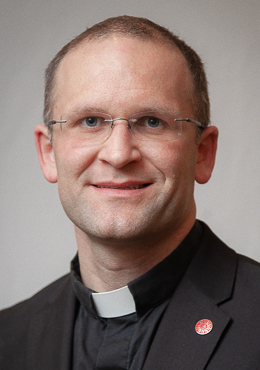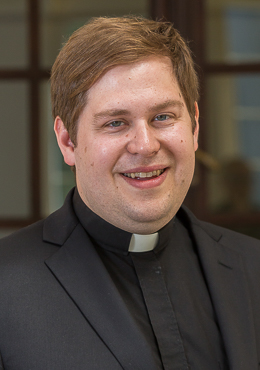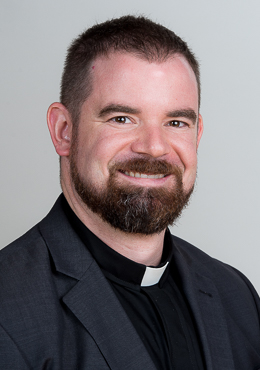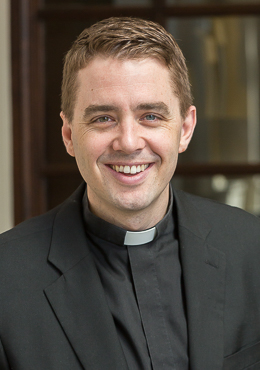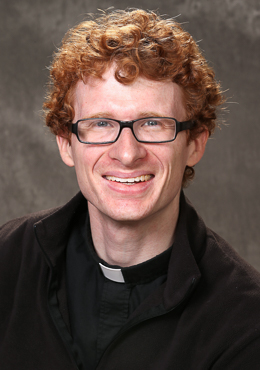
Province: USA Midwest
Birthday: February 1, 1984
Hometown: Cleveland, Ohio
Education:
Bachelor’s
degree, philosophy, Williams College
Master’s degree, classics, Washington University (St. Louis)
Highlights of Jesuit Formation:
Taught
classical languages and literature at Xavier University in Cincinnati, Ohio
Worked with Brothers of Saint John of God in their care for the sick
Served as a deacon at St. Ignatius Church in Paris and at St. Peter’s Church in
Saint Denis
Post-Ordination:
Will return
to Paris to complete his Licentiate in Sacred Theology at Centre Sèvres
Biography:
Born and raised in Cleveland, Ohio, Bryan Y. Norton, SJ, is the youngest of three children and the
proud uncle of five nieces and nephews. His family and home parish instilled in
him a strong sense of solidarity, faith and service. Bryan met the Society of
Jesus at Saint Ignatius High School in Cleveland, where the vibrant tradition
of Jesuit education left a profound mark. Eager to pursue a liberal arts
education, he studied philosophy at Williams College in Massachusetts. There,
through the bonds of friendship in an active Newman Center, Bryan had a deep
experience of Christ and the Church. During an influential junior year abroad
at Oxford University, he reconnected with the Jesuits and began a journey of
discernment that led him to the novitiate in 2008. As a novice, he worked
extensively with adolescents at Loyola High School in Detroit. After professing
first vows, he spent four years studying in Saint Louis, earning a master’s
degree in classics (Latin and Greek) at Washington University. As a regent,
Bryan taught classical languages and literature at Xavier University in
Cincinnati. Since the summer of 2016, he has lived in France, studying theology
at Centre Sèvres, the Jesuit faculty of Paris. During these years abroad, Bryan
has collaborated closely with the Brothers of Saint John of God in their care
for the sick. As a deacon, he has served at St. Ignatius Church in Paris and at
St. Peter’s Church in Saint-Denis. This summer after ordination, he will
celebrate a Mass of Thanksgiving at his home parish, St. Basil the Great, in
Brecksville, Ohio. In the fall, Bryan will return to Paris to complete his
Licentiate in Sacred Theology. (USA
Midwest Province)
Who’s your favorite saint, and why?
When Jesuits
profess their perpetual vows at the end of novitiate, they are invited to take
a special patron saint, if they wish. Though we do not use this “vow name”
publicly, we do take it seriously; for the choice clearly signifies a special
spiritual bond in the Body of Christ. For me, the decision was easy, and I’ve
never regretted it. On vow day, like many a Jesuit before me, I took the name
Mary.
Of course, it’s hard to top the Mother of God, right? Practically speaking, the choice resolved an otherwise intractable dilemma: picking among my favorite Jesuit saints. On a much deeper level, though, this Marian link says something important about the maternal roots of my Jesuit vocation. Ultimately, I owe my faith formation to my dear mother, Barbara. At a very young age, her tenderness convicted me that God is Love (1 Jn 4:8). Over the years, her unwavering support taught me to build upon the Rock (Mt 7: 24-27). At every step of my journey, her loving, maternal presence — even from afar — has prepared me for the close companionship with Christ that lies at the heart of Jesuit life.
Given this l bond, I have always felt especially close to Mary. In her maternity, she has led me to the person of Jesus. Day by day, she teaches me who he really is: “God with us” (Mt 1:23). In so doing, she reminds me who I am called to be: a hearer of the Word and a bearer of Christ’s presence in the world. The English poet, Gerard Manley Hopkins (1844-1889) — one of my favorite Jesuits — puts it beautifully: “Through her we may see him / Made sweeter, not made dim, / And her hand leaves his light / Sifted to suit our sight.”
Mary, Mother of God and Mother of the Church — pray for us…

Bryan with his mother Barbara in Montmartre, Paris, on the day after his ordination to the diaconate, for a Mass in the chapel where St. Ignatius and the first companions took their vows in 1534.
My first love was baseball: diehard Atlanta Braves backer and huge Greg Maddux fan (with a wicked 90s card collection to prove it!). For me, the smell of a mitt and the sound of a bat still rank among life’s greatest joys — simple yet sublime.
I also tap-danced as a boy — and would love to pick it up again.
Imagine you could travel back in time and meet
yourself the first day you entered the Society of Jesus. What’s one piece of
advice you’d give to yourself?
Two simple words: patience and
trust. Somewhere along the line, I stumbled upon a lovely prayer by a French
Jesuit (and paleontologist!) Pierre Teilhard de Chardin (1881-1955). I’d
probably tell myself to memorize and pray it daily: Above all, trust in the
slow work of God.
We are quite naturally impatient in everything to reach the end without delay. We should like to skip the intermediate stages. We are impatient of being on the way to something unknown, something new. And yet it is the law of all progress that it is made by passing through some stages of instability — and that it may take a very long time.
And so I think it is with you; your ideas mature gradually — let them grow, let them shape themselves, without undue haste. Don’t try to force them on, as though you could be today what time (that is to say, grace and circumstances acting on your own good will) will make of you tomorrow. Only God could say what this new spirit gradually forming within you will be. Give our Lord the benefit of believing that his hand is leading you and accept the anxiety of feeling yourself in suspense and incomplete.

Bryan with the family dog, Murphy, at the new Marian grotto at his alma mater, Saint Ignatius High School in Cleveland, Ohio.
How might you explain the Jesuit motto "ad
maiorem Dei gloriam" to someone who’s never heard it before?
As a great lover of classical languages, I’d have to start
with a literal translation of the phrase: “for the greater glory of God.” [I
would then try hard not to get too excited about Latin grammar: the preposition
(ad) here governing a feminine singular object (gloriam), which is modified by
an irregular comparative adjective (maiorem). The real kicker is the syntax of
that Dei: do we have an objective or subjective genitive on our hands here — or
perhaps a simple possessive? What difference does it make, theologically
speaking? Such questions will, I hope, evoke sweet memories for former students
at Xavier University (#CPHAB4life!).]
Ok, ok — so I’d skip the grammar and cut straight to the chase. In so doing, I’d probably break it down like this, pulling from various spiritual sources that have formed and inspired me along the way: A simple fact: I have nothing that I have not received (Paul). A deep truth: All is grace (Bernanos). A personal encounter: From his fullness, we have all received, grace upon grace (John). An honest question: How can I make a return to the Lord for all his goodness to me? (the Psalms) An enthralling mission: “This one work has to do — / Let all God’s glory through” (Hopkins). In the end, I’d sum up the Latin phrase with a Latin verb — Mary’s fiat: “Let it be done unto me," O Lord, according to your Word. AMDG!
